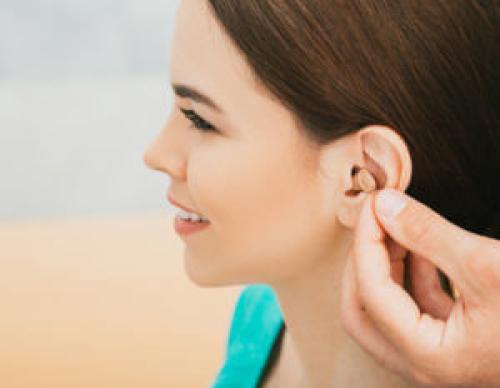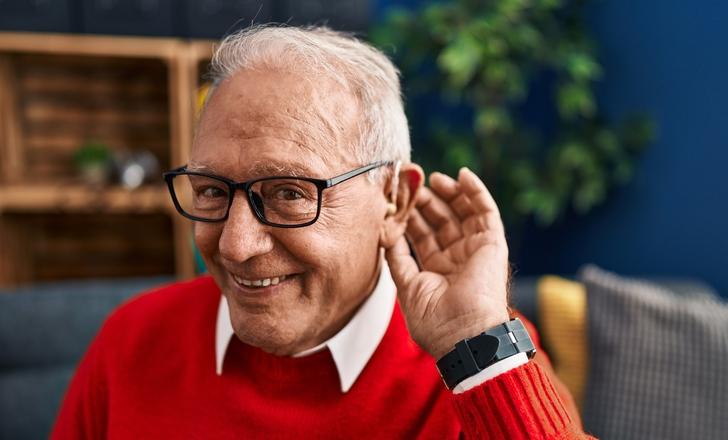As we take precautions during the COVID-19 pandemic in order to keep the people around us safe, a growing number of people are having a harder time communicating.
“A lot of my day is discussing good communication skills,” says Jennifer Gowan, one of the Audiologists at Altru’s Audiology and Hearing Center. “I wanted to share that discussion with you. By using masks, communication has become more difficult.”
Whether it’s understanding what the cashier is asking you at the grocery store, or struggling to hear what someone is saying from a distance, masks prove to be a bigger challenge for people who are hard of hearing.
Creating a Good Listening Environment

“Good communication not only includes the way we speak, but the environment we’re in,” says Gowan. “A good listening environment includes a quiet one. By reducing background noise, we can have a better signal-to-noise ratio meaning the signal, or what we want to be heard, is louder than the noise around us.”
It’s a good idea to face the person you’re talking to. By facing them directly, they know who they’re talking to and can watch for any facial cues. Facing someone directly also provides a clear path for the acoustic signal to travel.
“The last and most important thing is to take turns talking,” says Gowan. “Having only one person talking at a time establishes a good signal-to-noise ratio. It helps the speaker’s voice be louder than everything else.”

How You Speak
While the environment can make a huge impact on how well we communicate, how we speak is also crucial.
“It is important for the speaker to be clear and concise with the information they are trying to convey,” says Gowan. “Slow down your rate of speech. Speak louder than normal but don’t shout. No one likes to be yelled at. And give cues as topics change.”
Providing cues will help the listener correctly fill in information they might have missed. If a listener misses something they may respond with, “huh?” or “what?” It’s a good idea for a speaker to rephrase their statements instead of repeating.
“By rephrasing, we’re giving the listener more cues to draw from to fill in the blank,” says Gowan.
Assistive Devices Can Help
If you notice you or your loved ones are still struggling to communicate, Altru’s Audiology and Hearing Center can help you look at different assistive devices. Assistive devices include hearing aids, pocket talkers and other technology to help listeners understand what’s being said.
Hearing Aids
Hearing aids are small devices you put in your ear. Hearing aids can be set for hearing loss to help adequately amplify sounds for you.
“If you are already a hearing aid user and you struggle to hear and communicate, I encourage you to come in for an adjustment,” says Gowan. “Sometimes it’s a pretty easy fix to help you hear better.”
Smartphones or Tablets

We also recommend an app called Live Transcribe. This app dictates what’s being said so the listener won’t miss anything. One of the app’s features allows you to save text to read later. “What this app does is it takes speech and puts it right to text in real time,” says Gowan. “I’ve suggested this app for my patients who are significantly hearing impaired and are struggling right now because they cannot lipread.”
Pocket Talkers
If someone is visually impaired and unable read text on a phone or smart tablet, a pocket talker is a great option. A pocket talker gives a microphone for the speaker to talk into. And the headset for the listener to wear. The volume on the headset is adjustable and able to be increased significantly.
“Having hearing loss can be incredibly isolating,” says Gowan. “If you’re sitting around with family and you can’t hear it’s awfully lonely.”
Pocket talkers are relatively inexpensive. They are often for sale on Amazon. Altru’s Audiology and Hearing Center also has pocket talkers available for patients if you’d like to try using one at your next appointment.
“I like this device because it makes you take turns,” says Gowan. “Only one person gets to talk into the mic at once and that makes that favorable signal-to-noise ratio.”
Here to Help
If you have any further questions, or you want to talk about your hearing, please don’t hesitate to call our Altru’s Audiology and Hearing Center. You can also schedule a visit for an adjustment to check where your hearing is at. Call Altru’s Audiology and Hearing Center at 701.780.6204.







